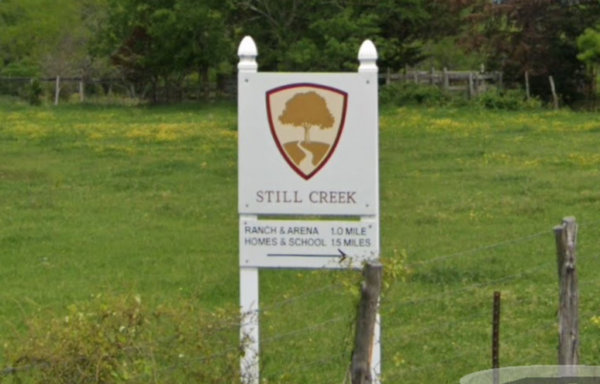
In a recent report from KBTX, we learn that a former teacher, 30-year-old Brooke Martinez, has been arrested following allegations of an improper relationship with an 18-year-old student. According to the Brazos County Sheriff’s Office, Martinez is accused of engaging in a one-time sexual relationship with the student in 2024 and sending him explicit photos of herself. Martinez was a teacher at Still Creek Christian Academy located at 6055 Hearne Rd, Bryan, TX 77808.
The allegations were first reported in March, when a school staff member contacted authorities after speaking with the student. Investigators interviewed Martinez in April, during which she reportedly admitted to the relationship. She was arrested shortly after in Ellis County and released on bail.
In a statement, Still Creek Ranch expressed heartbreak and disappointment over the situation, emphasizing that the alleged behavior does not align with the standards expected of its staff. The organization stated that Martinez had passed rigorous background checks prior to her employment and that she separated from the academy earlier this year.
The statement reiterated the institution’s commitment to providing a safe and nurturing environment for its students, adding that they promptly reported the allegations to law enforcement and child protective services.
This arrest follows an earlier case involving Martinez’s father, 57-year-old John Martinez, a former house parent at Still Creek Ranch. He was arrested in February on three counts of Indecency with a Child by Sexual Contact.
Court records detail allegations that John Martinez brought teens to his private room, locked the door, and engaged in inappropriate conduct, threatening to remove them from the ranch if they did not comply. The allegations surfaced after a teenage girl reported the incidents to authorities in January.
John Martinez was released on bond after posting a total of $150,000. Still Creek Ranch addressed this case as well, stating that they were deeply saddened by the allegations and immediately notified law enforcement and child protective services.
The two separate but highly concerning cases have raised questions about the safety and oversight at Still Creek institutions. Still Creek Ranch reiterated its zero-tolerance policy for misconduct and pledged full cooperation with ongoing investigations.
The organization emphasized that its mission remains focused on providing a safe and loving environment for children, while ensuring that those in its care are protected and supported.

When trust is broken by those entrusted with the care and education of children, the impact on victims and their families is profound. In this interview, Texas sexual abuse attorney Anjali Nigam discusses the legal paths available to families navigating the aftermath of sexual abuse at a Christian academy. From holding institutions accountable to seeking compensation for emotional and psychological harm, Nigam outlines the steps that can help families rebuild and advocate for safer environments.
Darla Medina (Editor): Thank you for joining me, Ms. Nigam. Cases like these are deeply troubling, especially when they involve individuals in positions of trust. What legal options are available for students who have been abused by a teacher?
Anjali Nigam (Attorney): Thank you for having me, Darla. When a student is harmed by a teacher or someone in a position of authority, they can pursue legal action on multiple fronts. Criminal charges are often filed by law enforcement, as we see in these cases, but victims also have the right to file civil lawsuits. This allows them to seek compensation for emotional trauma, therapy costs, and other damages they've endured.
Medina: What role does the school or institution play in these cases?
Nigam: Schools and institutions have a duty to protect their students. If it can be shown that they were negligent—failing to properly screen, supervise, or respond to warning signs—they may also be held liable in civil court. Victims and their families should explore whether the institution took adequate measures to prevent harm.
Medina: What would you say to victims who may feel hesitant about coming forward?
Nigam: It’s understandable to feel hesitant, but it’s important to know that coming forward can be a step toward healing and accountability. Victims often feel empowered when they see their actions help protect others from similar harm. Legal professionals and victim advocates are there to guide them through the process with compassion and confidentiality.
If your family has been affected by the actions of a trusted teacher, you don’t have to face this alone. Legal support can provide a path forward, offering guidance and advocacy during this challenging time. Contact us today for a free consultation to discuss your options and begin taking steps toward justice and recovery. We are here to stand with you.
 info@legalherald.com
info@legalherald.com